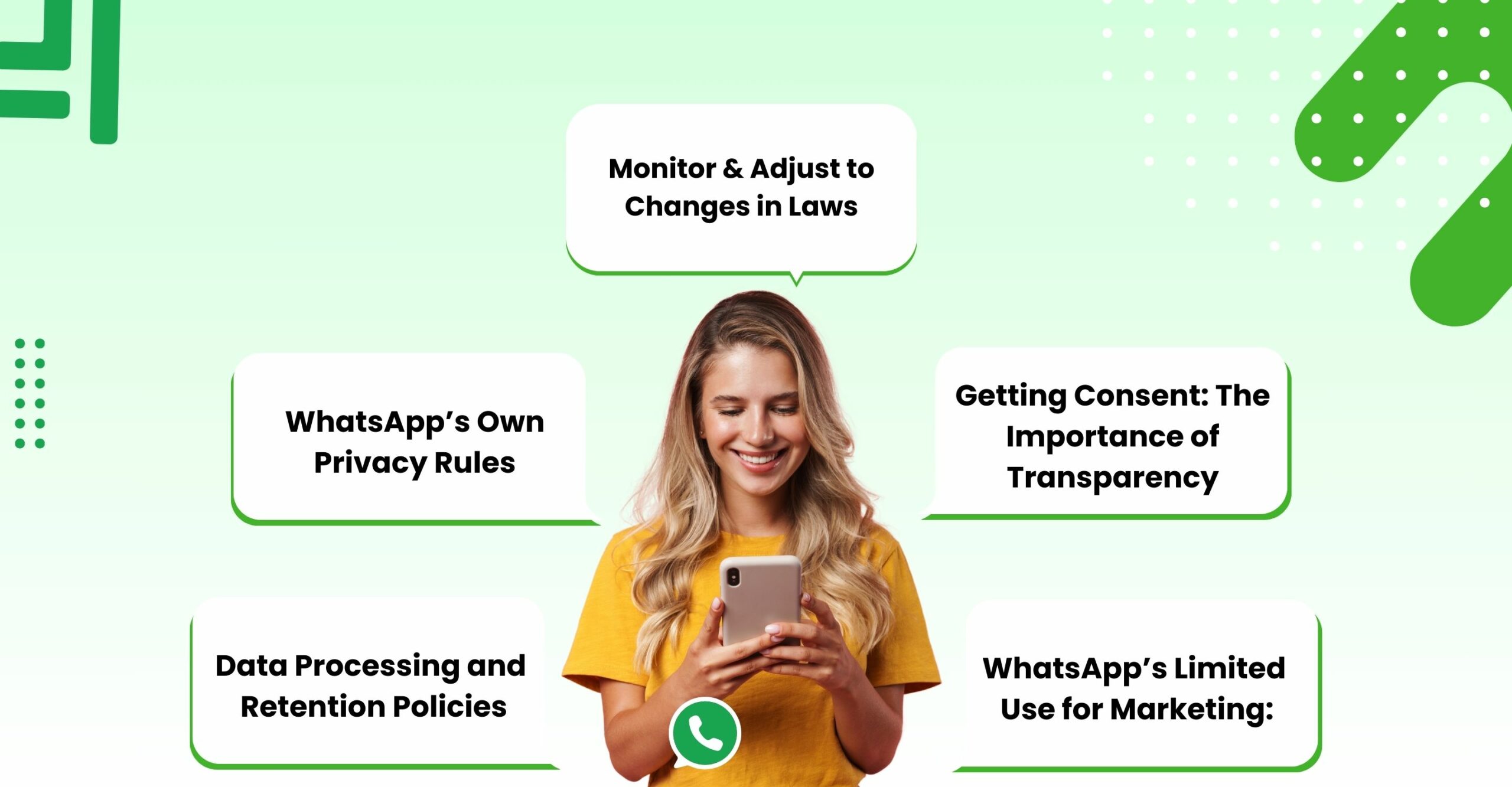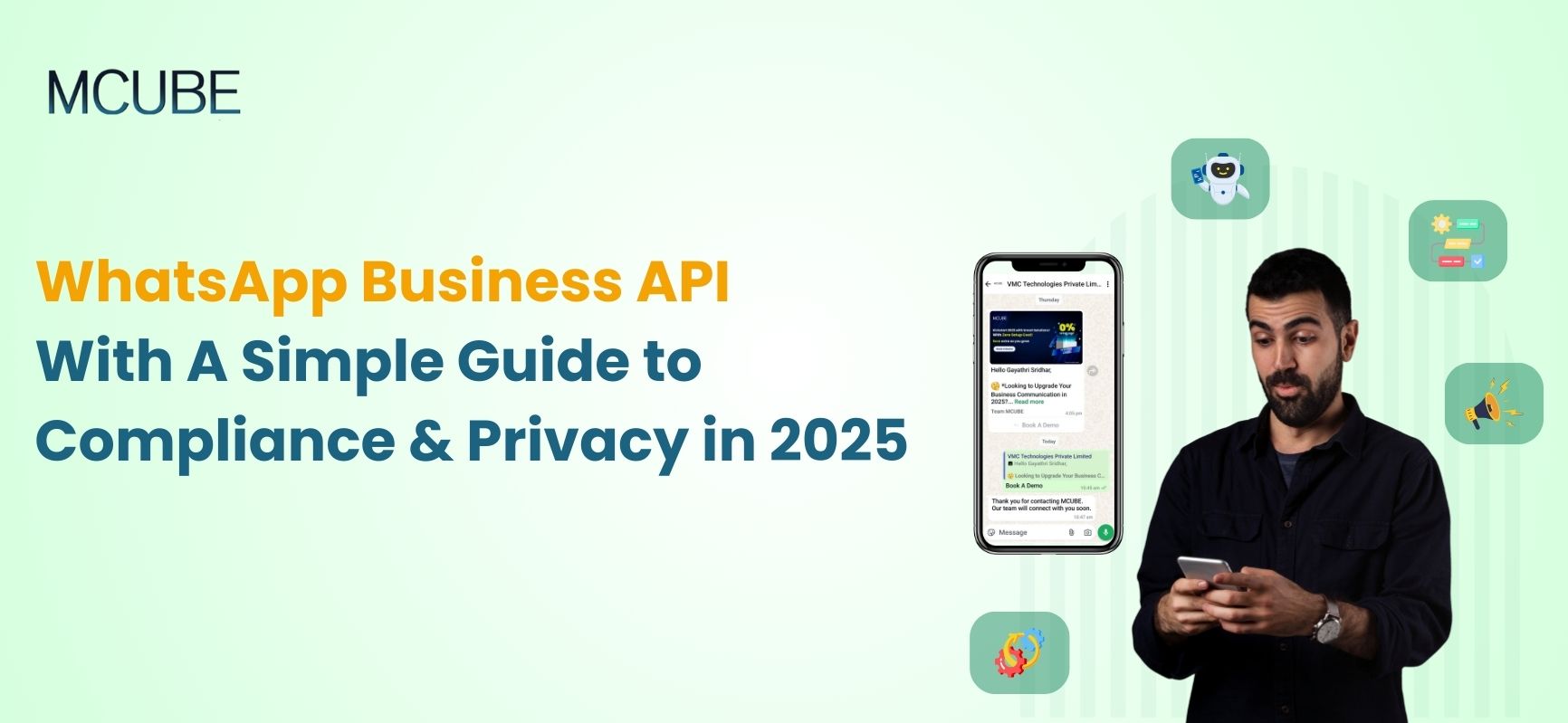Organizations or small businesses are opting for faster and easier means of communication with their customers. There are tons of tools and software available in the business market, but WhatsApp Business API – a sure-shot solution for automating messages, assisting customer interactions, and attaining personalized engagement right from the box.
But with more digital communication, there is more responsibility in terms of compliance and privacy. From a small business scaling operations to a large business expanding customer touchpoints, holding the elements of WhatsApp API compliance and privacy is a vital component of the solution.
In 2025, taking place in tighter privacy rules and further regulation over digital security, this guide provides an in-depth look at what businesses should know about implementing the WhatsApp Business API while remaining compliant with changing privacy standards.
So pour yourself a coffee, and let’s get right into it.
What Exactly is the WhatsApp Business API?
Before anything else, let’s set the context by briefly introducing WhatsApp Business API. If you’ve heard of WhatsApp, you know it as the messaging platform that billions use to stay in touch with friends and family.
Now, WhatsApp made a more powerful version specifically for businesses – the WhatsApp Business API. On this platform, businesses can send automated messages, customer support, notifications, and a host of other effective tools that can integrate with third-party platforms, for example, CRM tools.
It provides businesses with a way to manage customer communications at scale with a personal touch. This improves customer experience from appointment reminders to personalized updates.
But, as much as it lends to your business communication, it also brings some risks with its name, mainly because of the nature of the transferred data.
Businesses have more regulations than ever on data use, from following privacy rules to avoiding violating user rights. With this in mind, it is no longer acceptable to be non-compliant.
Navigating Compliance & Privacy for WhatsApp API in 2025

In the case of WhatsApp API and compliance for 2025, there are multiple layers of privacy regulations that organizations need to comply with. What might look like all technical or tiring guidelines, are actually there to protect your customers and your brand’s reputation.
Here are the factors businesses must consider regarding the use of WhatsApp API related to privacy.
1. WhatsApp’s Own Privacy Rules
For all its global success with messaging, WhatsApp takes privacy seriously. The Business API provides a clear guide to how the data is to be used.
Messages sent over the platform are also secured using end-to-end encryption on WhatsApp, ensuring that user data cannot be accessed by unauthorized parties.
WhatsApp is the transport service. It implements message forwarding software — client and server. It also has no visibility into any message content that is sent. Furthermore, it regulates user safety by identifying unusual messaging patterns (e.g., a business attempting to message all users) or gathering spam reports from users.
Pro Tip: End-to-end encryption makes it harder for outside attackers to access messages and data. Thus, businesses are responsible for managing and protecting data, especially when integrating WhatsApp with third-party tools or services like CRMs.
2. Data Processing and Retention Policies
If businesses use WhatsApp to manage customer information, their data retention practices are highly important in ensuring compliance with rules such as GDPR and similar privacy legislation in the respective country.
Once messages are delivered, WhatsApp doesn’t retain the information as per their policy. However, it is your responsibility, as a business, to make sure all sensitive customer data is securely managed, especially if you store it on external platforms like cloud systems or database tools and software.
3. Getting Consent: The Importance of Transparency
Amid increasing concerns about spam and privacy violations, consumers or customers increasingly expect to have control over their data. Informed consent is one of the fundamental obligations under many privacy laws.
Ensure your customers understand how their data may be used, how often they will be contacted, and how to opt-out at any time. For example, these might be explicit opt-in requests through a website or landing page. Keep it easy to understand, so customers can feel confident about opting in.
Provide an easy way to opt-out, such as sending “STOP” messages to remove yourself from their list. This keeps you transparent and compliant.
Pro Tip: Whitelist only for your direct marketing activities using WhatsApp Business API. Asking the user for permission is a step you never want to skip.
4. WhatsApp’s Limited Use for Marketing: A Strong Compliance Stand
One more thing to keep in mind, WhatsApp has established guidelines on what types of messages can be sent through the Business API.
WhatsApp, on the other hand, is more restrictive when it comes to sending marketing messages, although it is perfectly designed for customer service, order confirmations, appointment reminders, and other transactional updates.
That means businesses must act carefully when it comes to promotional content. If you are going to send marketing messages, customers should not simply be opting in; they should be actively suggesting such interactions through your messaging tools or campaigns.
This ensures your WhatsApp communications are transparent, compliant, and aligned with your customers’ preferences.
5. Monitor & Adjust to Changes in Laws
Similar to keeping up with new trends, being aware of changes to compliance and data privacy laws is just as important.
As the regulatory scenario progresses, WhatsApp’s business policies, as well as general compliance laws (e.g., in places such as California (US) (CCPA)).
By staying in sync with these amendments, you ensure your business has always adjusted to new regulatory changes to maintain your brand reputation and gain customer trust.
Wrapping It Up: Building Trust Through Compliance
In the ever-evolving space of customer dealings and rapid communication, exchanging messages with customers via WhatsApp Business API makes great sense. But in 2025 it is going to be no longer business as usual, organizations need to provide data privacy and compliance to get ahead.
Keep in mind these rules of thumb, take care to collect consent, respect privacy laws, apply end-to-end encryption, and keep ahead of regulations—and you will be well on your way to a successful and compliant WhatsApp Business API strategy.
The Bottom Line? Compliance should not be a hindrance; it presents an opportunity to establish trust and credibility with your customers. And trust? Well, that’s what brings them back to more.
As a step into 2025, WhatsApp API can be your best companion in interacting with customers, only if you are using it ethically and legally.


